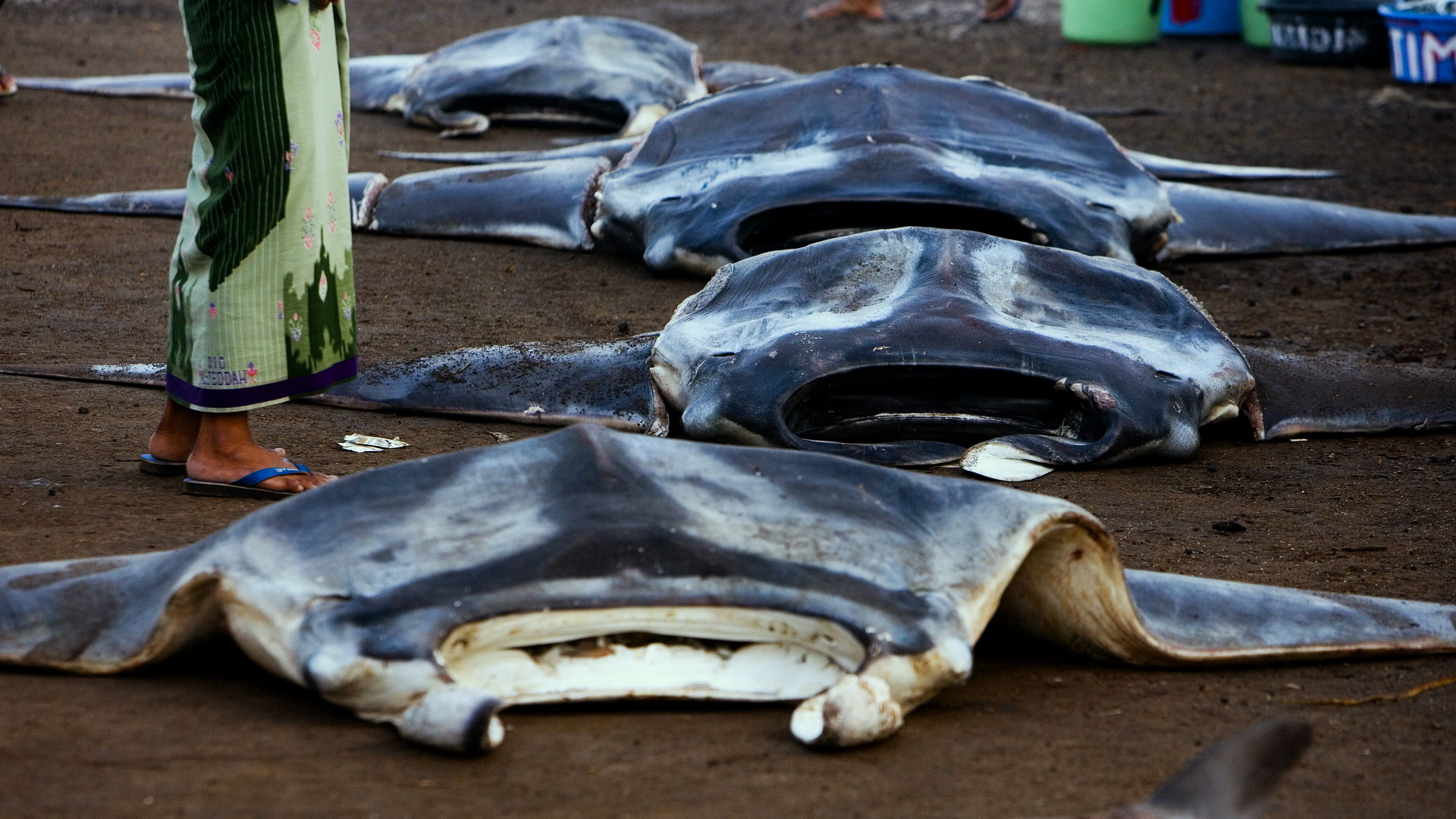
Global shark and ray populations are under threat from targeted fisheries and incidental take (bycatch). In the last 50 years, oceanic shark populations have declined by over 70%. More than 300 species of sharks and rays are now listed as either endangered or critically endangered by the International Union for Conservation of Nature, and at least 75% of oceanic shark species are at risk of extinction.
Shark protection in Florida. In order to address these threats, OPS is working with Shark Allies to protect sharks in Florida and globally. With our support, the Kristin Jacobs Ocean Conservation Act was passed in September 2020, effectively banning the import, export and sale of shark fins within Florida. Florida became the 15th state to ban the shark fin trade.
In partnership with others, OPS efforts helped establish bans on the sale of shark fins in Texas and New Jersey.
Education. OPS is also supporting the Canvas of the Wild and artist Kelly Quinn’s “Sea of Connections” mural on iPrep Academy in Miami, Florida. The mural contains digital touchpoints installed and connected to the Canvas of the Wild knowledge base to facilitate marine science in a Miami-Dade public school. This 1,000 square-foot piece features keystone and endangered pelagic species like the Scalloped Hammerhead and Shortfin Mako and vulnerable species like the Whale shark, Leatherback sea turtle, and Great white shark.
The educational touchpoints are embedded in the mural to allow teachers, parents, and students to identify and learn more about each species simply by touching their NFC-enabled device to the eye. This project has been designed and developed by Canvas of the Wild in collaboration with Shark Allies to uplift the importance of sharks and marine science to our community while paying respects to the late Kristin Jacobs.
Consumer awareness campaigns. While a global focus on shark meat and shark fins is important, we are also working with the Shark Allies team to bring much needed attention to the growing demand for shark-based squalene, raising consumer awareness around the use of squalene in cosmetics, personal care products, and even vaccines.
Squalene boosts hydration in skin, while the antioxidant effect claims to help fight skin damage and free radicals. This is believed to help slow down the aging process of the skin and is included in many cosmetics and skin care products. Squalene is also used in some vaccines as an adjuvant to increase the human body’s immune response, thus increasing the vaccine’s efficacy. Squalene made from sharks is relying on finite, wild animal populations that are under pressure and in global decline.
Although plant-based options exist, historically squalene sourced from sharks was considered the cheapest and easiest. Average consumers do not know whether or not their products could contain shark products. Cosmetic companies themselves may be just as confused. Plant-derived squalene delivers these same benefits.
With vague messaging and ingredient lists, it’s all too easy for companies to allow shark-derived products to slip through unnoticed. Your makeup and skin care routine may be contributing to the global decline in sharks.
Fly Without Fins Campaign. Our Fly Without Fins Twitter Campaign is making a difference. Launched in June 2020 with lead campaign partner Shark Guardian, this social media campaign has targeted airlines over Twitter, seeking their commitments to not fly shark fins in their cargo.
Banning the transport of shark fins in air cargo is an important step in shark conservation. Why? Because shipments perpetuate the deadly trade in shark fins, and link consumer demand with supply.
To date, over 56 airlines have stated that they do not transport shark fins in their cargo. Of these, 13 new airlines committed to a shark fin-free carriage policy since the launch of the campaign and in response to our tweets, including Austrian Airlines, Corsair, Aegean Airlines, Africa World Airlines, and others. Olympic Air (Greece) recently declared publicly that they don’t fly fins in response to an OPS Tweet!
Shark fin trade in the U.S. While shark finning has been illegal in United States since 2000, there are several critical gaps that allow shark fins to transit and be traded. U.S. fisheries feed an intense global demand for shark fins. We are supporting federal legislation, The Shark Fin Sales Elimination Act, to curb this deadly trade and address this issue nationally.
Marine Stewardship Council reform. With our partners at Make Stewardship Count, OPS co-authored a paper on the need for the Marine Stewardship Council (MSC) to adopt a ‘Fins Naturally Attached’ (FNA) policy to ensure any fisheries that are certified by the Council do not participate in shark finning activities. Currently, fisheries that have shark finning present are still being certified by the MSC, a global labelling and certification scheme that is meant to raise sustainability standards for fisheries. Even though the MSC has stated a ‘zero tolerance’ policy for shark finning, it is not backed by their policies. The only way to ensure the highest standards and discourage finning is to include a FNA policy within the MSC certification scheme.
Manta Ray Conservation in Lamakera, Indonesia. With our partners at the Misool Foundation, OPS continues to support the community transition program in Lamakera, Indonesia. Highlighted in our film, Racing Extinction, this program is working to empower locals to adopt ecotourism instead of manta hunting.
International shark protection at CITES. After Racing Extinction exposed the trade, OPS helped secure protections for 20 species of sharks and rays under CITES in 2016.
What you can do!
Grab your makeup bag, locate products, and find the ingredients list. Then, follow this step-by-step process to see if your skin care products have shark squalene in them. Help us identify the Good and the Bad list for cosmetics so that we can encourage these companies to go ‘Shark Free‘!
Help us get another airline to commit to not carry shark fins in their cargo!